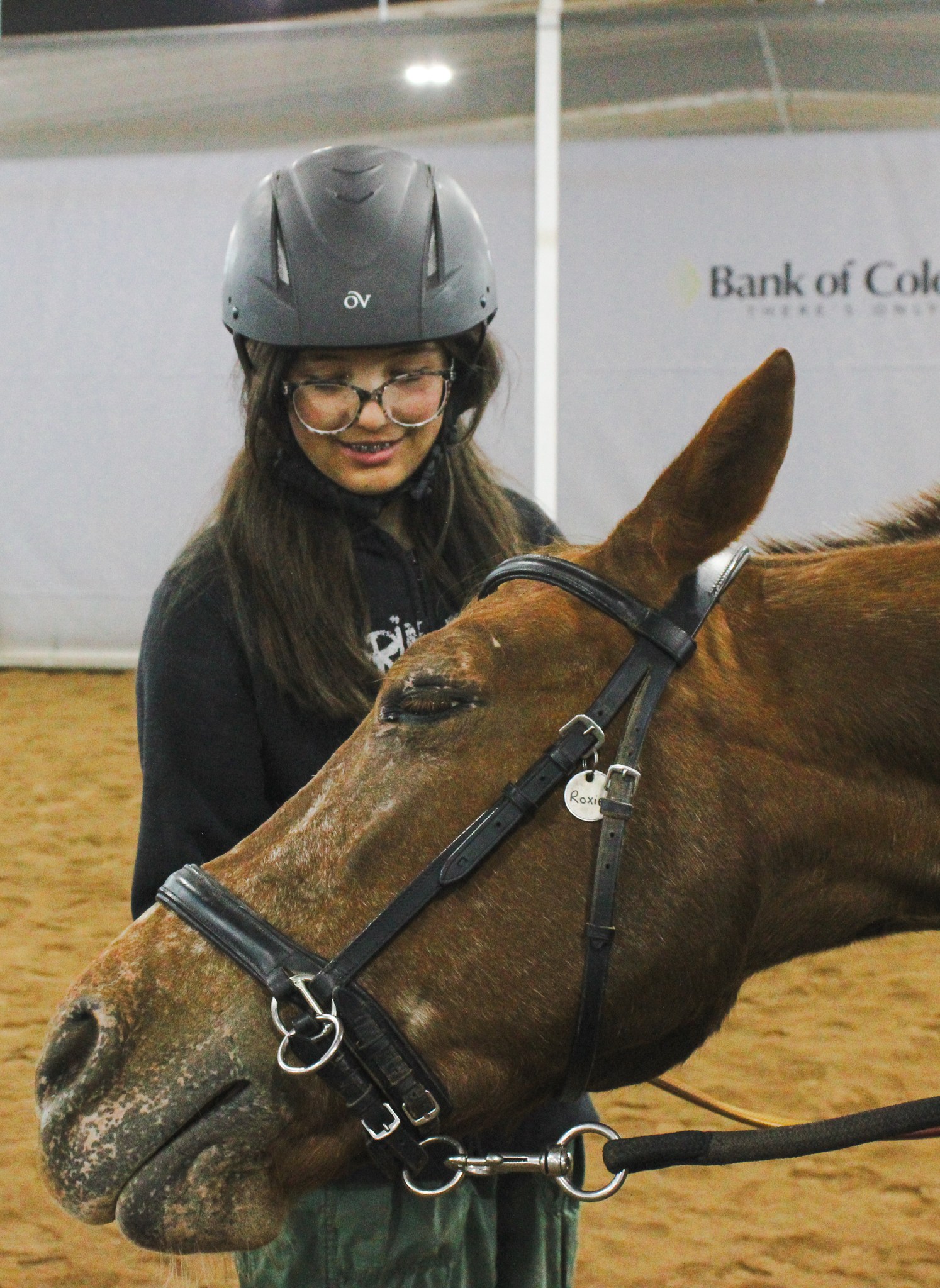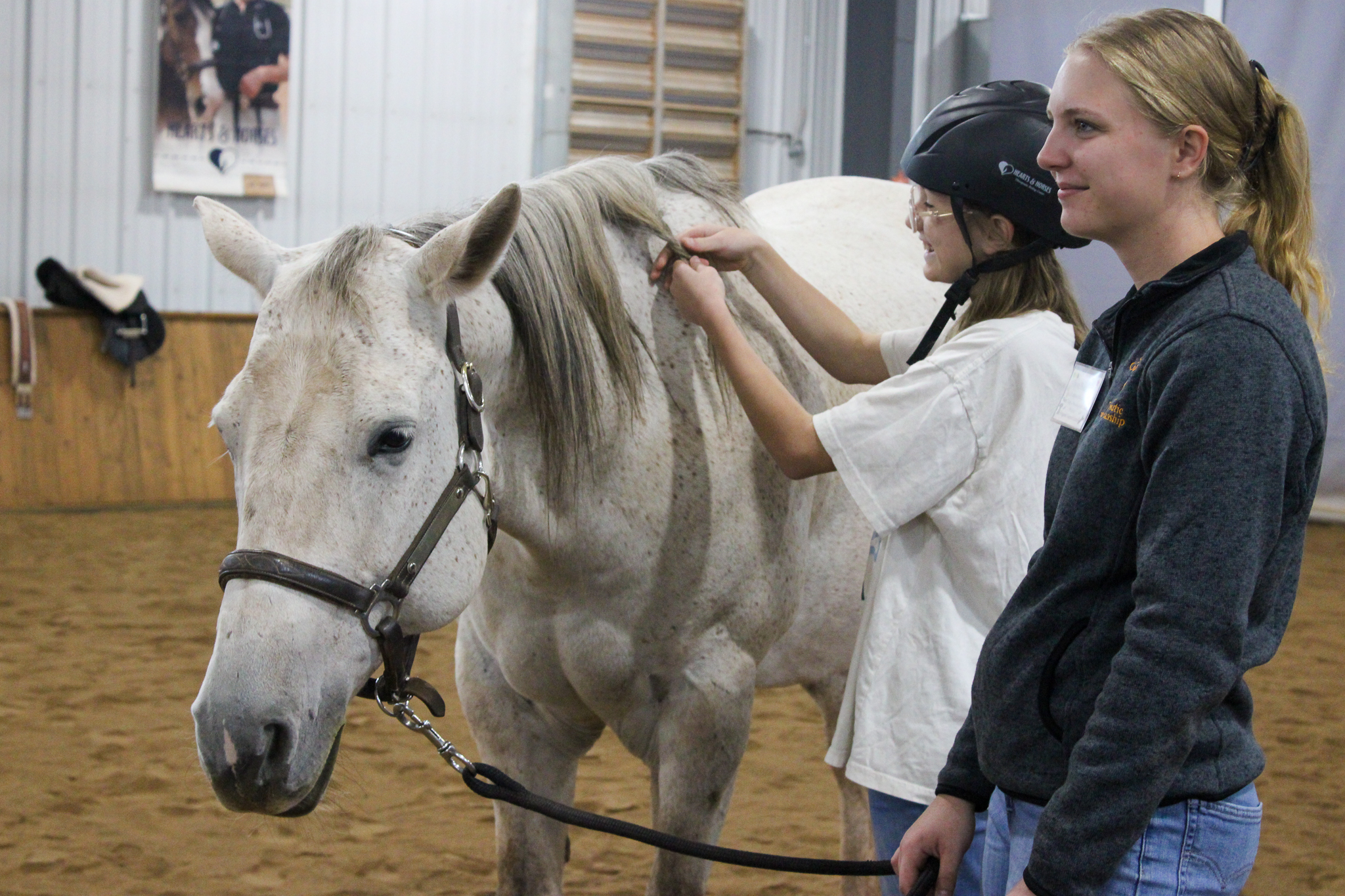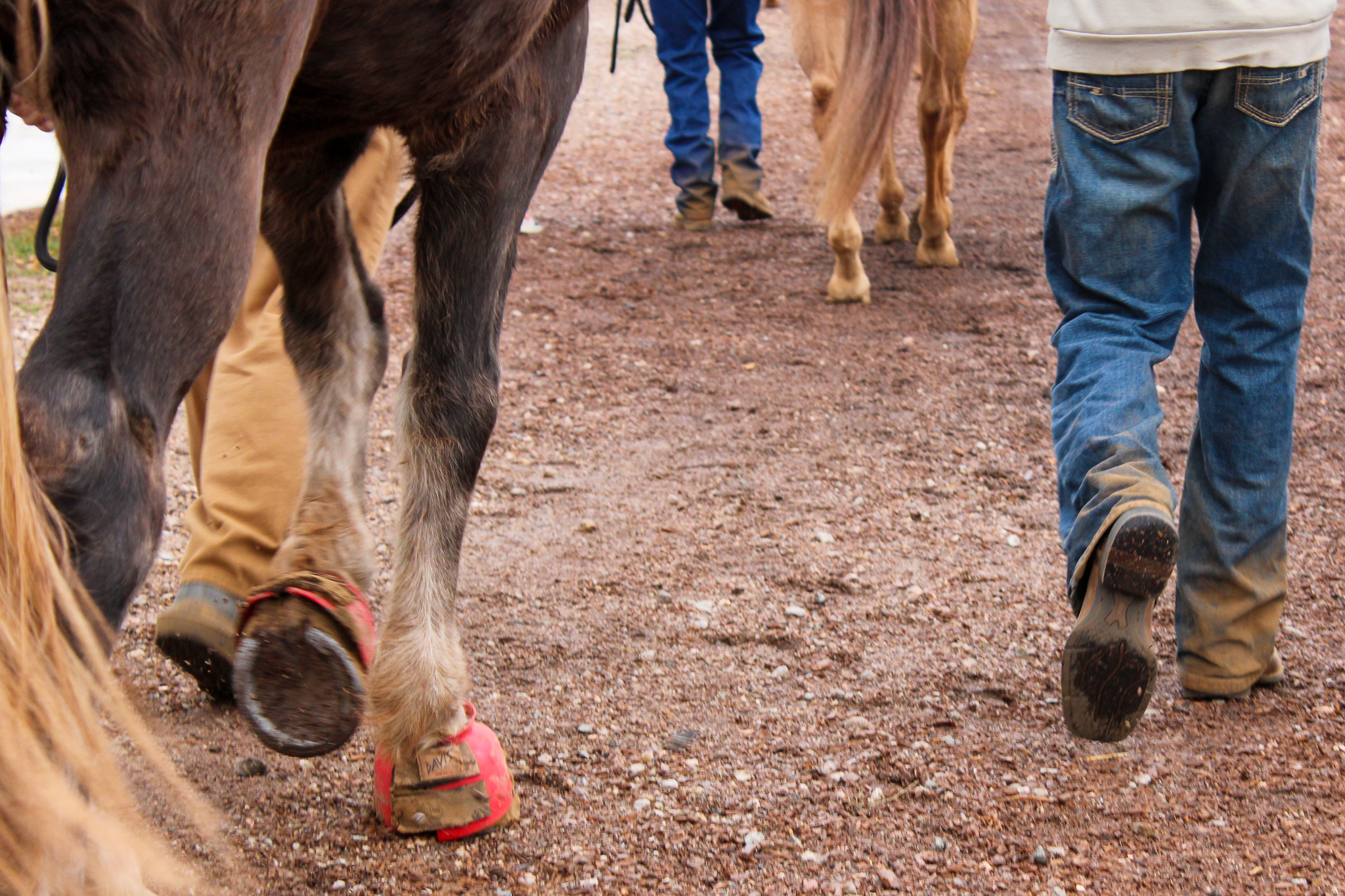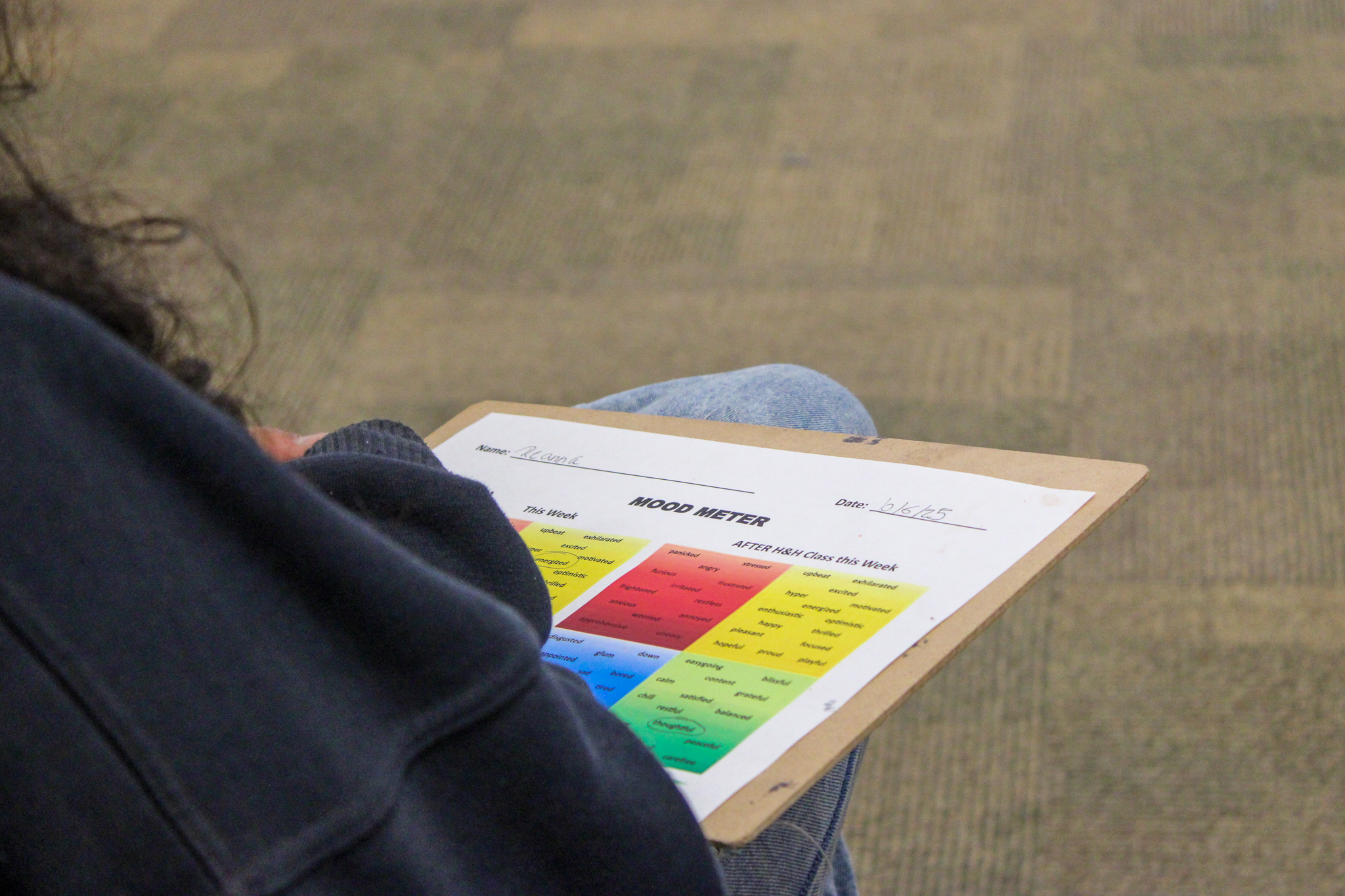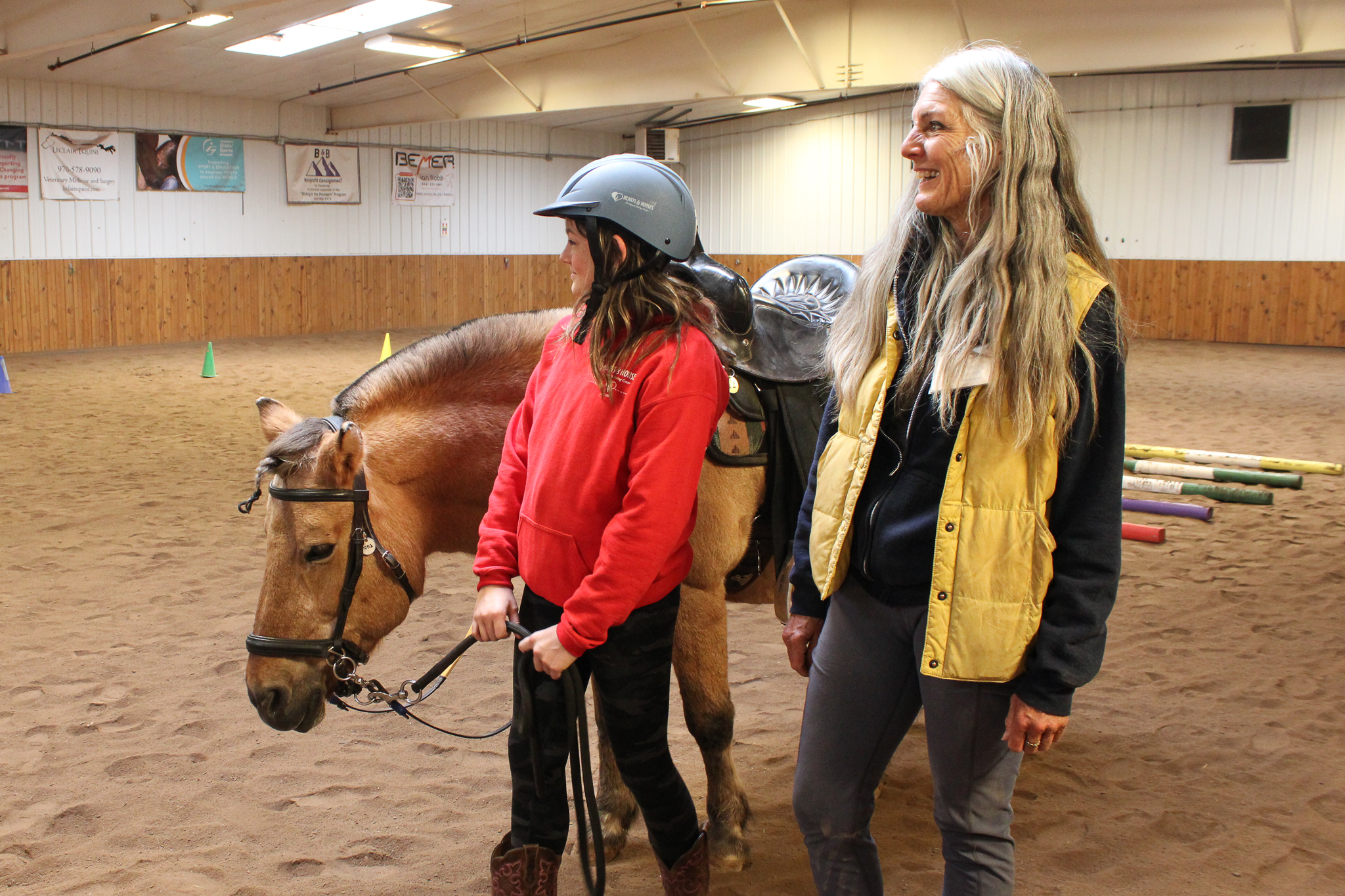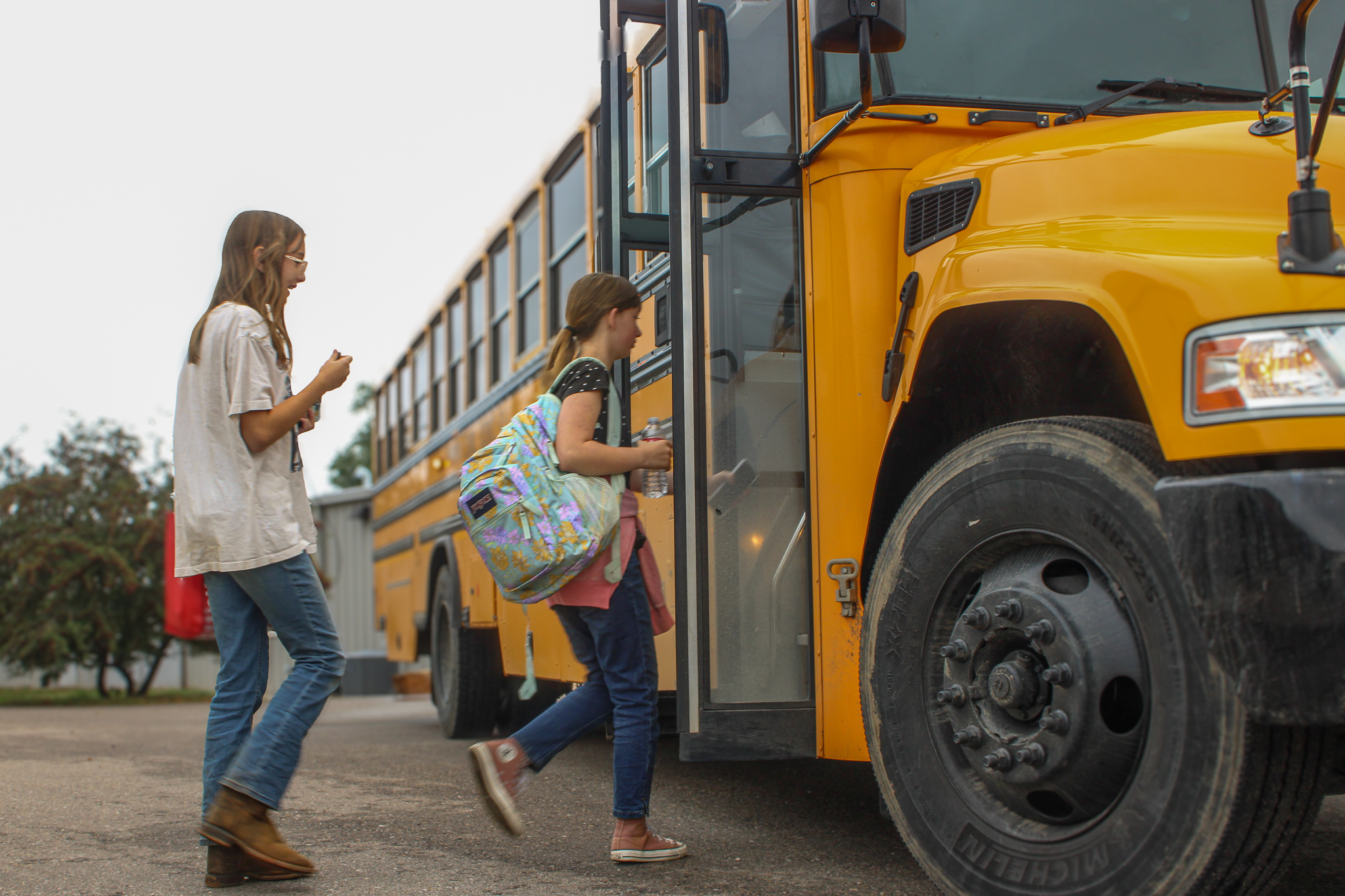Braided hearts: Larimer County middle schoolers learn confidence, social-emotional skills through equine-assisted learning program
Hearts & Horses’ program an investment in today’s youth, tomorrow’s community leaders
NOTE: This Spotlight article appeared in the Oct. 28, 2025, edition of The Lamplighter, Larimer County Behavioral Health Services' newsletter.
The sky on this October afternoon was overcast, but the mood inside the arenas in West Loveland was anything but gloomy.
Ten Thompson School District middle schoolers were learning neuroscience from some unexpected – and significantly larger – teachers: their horses.
It was week four of the eight-week, experiential learning program at Hearts & Horses, a nonprofit that specializes in equine-assisted learning for youth who face serious challenges to their mental health and development, veterans, people with disabilities, and more.
Each year since 2016, counselors pick students from TSD’s six middle schools whom they think will be a good fit for the program. These are students who may be isolated, have experienced trauma, or don’t yet have a place where they feel like they belong.
Alongside the same equine partner and volunteer each week, students learn about respect, empathy, and confidence. They practice skills related to self-efficacy, accountability, and conflict resolution. And they learn how to successfully navigate life’s challenges in a space that may work better for them than traditional therapy settings, or that is more accessible because transportation is provided.
Most students who start class feeling disappointed or glum leave Hearts & Horses feeling focused or thoughtful, as reported weekly by the students on their “Mood Meter.” Teachers have even said the students who return to school aren’t the same as those who left. They come back regulated, calm, ready and able to learn.
“I have had families who said this program saved their child’s life,” said Tamara Merritt, Hearts & Horses’ director of Program Innovation & Research.
The class on Oct. 6 began as usual in a classroom with big, wooden sliding barn doors and windows looking into one of the rural property’s three arenas. Students learned about parts of the human and horse brain, and how those parts control their abilities to think and learn.
When we are angry, anxious, sad, or scared, those big feelings are tied to our limbic systems, or “downstairs” brains. When this happens, it can be hard to be in our “upstairs” brain, where we control emotions or make good decisions.
That’s where the “six-second pause” can come in handy. Pick six things you like; those can be the name of a loved one, a favorite food, or an activity that brings you joy. When you have big feelings, say those six things to yourself or out loud.
This brief moment allows the brain to interrupt an emotional surge, engage the analytical part of the brain, calm the limbic system, and then choose a thoughtful, more effective way to handle a situation. For horses, a half-halt (their version of a six-second pause) is the difference between stumbling through a series of colorful poles on the arena’s dirt floor and careful navigation around the obstacles.
Many adults don’t have these tools or are learning them later in life. Which makes it even more impactful to reach students during a period of rapid brain development, Merritt said.
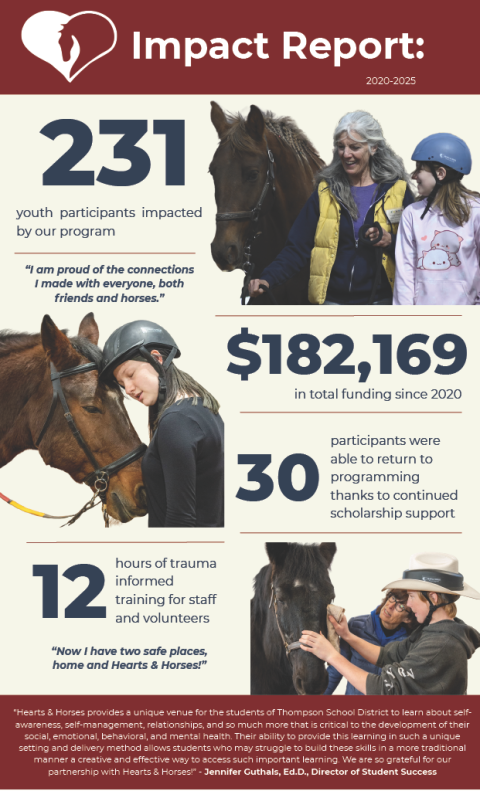
Sitting atop a high stool at a wood-top table, Lauren Hansen watched students in dusty pants and helmets lead, ride and, in some cases, braid the manes of the horses.
Hansen works as a mental health and social-emotional learning specialist with Thompson School District and has a private practice. It was her first time chaperoning the students, and she came in with some knowledge of the positive benefits of animal-assisted therapy. What she saw first-hand exceeded her expectations.
“Even in the hour I’ve been watching them … it gives them this sense of confidence and a place to belong,” she said.
“As a taxpayer, as a parent, I wouldn’t want my money going anywhere else,” she later added.
Funding for Changing Leads comes from a variety of sources, including private donations and a $50,000 Impact Fund grant that Larimer County Behavioral Health Services (BHS) awarded to the organization in 2025. Forty-one other unique organizations received grants, as well.
The Impact Fund Grant Program represents one of the ways BHS invests Larimer County’s dedicated behavioral health tax dollars. In addition to building and operating the Acute Care facility at Longview campus, a 24/7 behavioral health facility open to people of all ages, $17.7 million in grants have gone to 77 unique organizations in the past seven years.
“Talk about prevention,” Hansen said. Students in Changing Leads are given tools to be successful, and the return on investment can be big. Growing healthy, resilient children can reduce drug and alcohol use, and increase how individuals value connection with others.
“These are people who will live in the community for the next 30 to 40 years,” she said, and they will become leaders who make decisions about the future of Larimer County.
After walking their horses outside to rest, Cora Peterson, 13, and Claira Bothwell-Church, 12, eagerly talked about their experience with Changing Leads. Both attend Riverview PK-8, a TSD school in Johnstown.

Kept warm by a black Gorillaz sweatshirt, Cora grinned when asked how it was to meet her horse, Roxy. “You know when you make new friends? It’s like that. It was like a snap.”
Bothwell-Church is practicing patience with her horse, Hippie. It’s something the oldest of four siblings feels she struggles with. It has been important to Cora to learn about empathy, because it’s “good to know how people are feeling” so she can help out.
Her mother, Kaylee Peterson, agrees.
Kaylee described her oldest daughter as having a big heart, loyal, intelligent, funny, and sarcastic – like her dad in that way. She is very empathetic to people she cares about but is also a little guarded at times, and doesn’t always extend that empathy as far to people she’s not as close with, Kaylee said.
When Kaylee and her husband first heard about the Changing Leads program, they were excited but worried about the cost. They were floored to learn participation was covered 100% by a scholarship because of the community’s private and public investments in the program.
“I think it’s pretty amazing. I don’t have a whole lot of extra words,” Kaylee said.
“Mental health and behavioral health has come a long way. They were always a little taboo, but we’ve gotten with the times on how important it is.
It’s really awesome that we live in a county that puts money into programs that work with behavioral health,” she said.
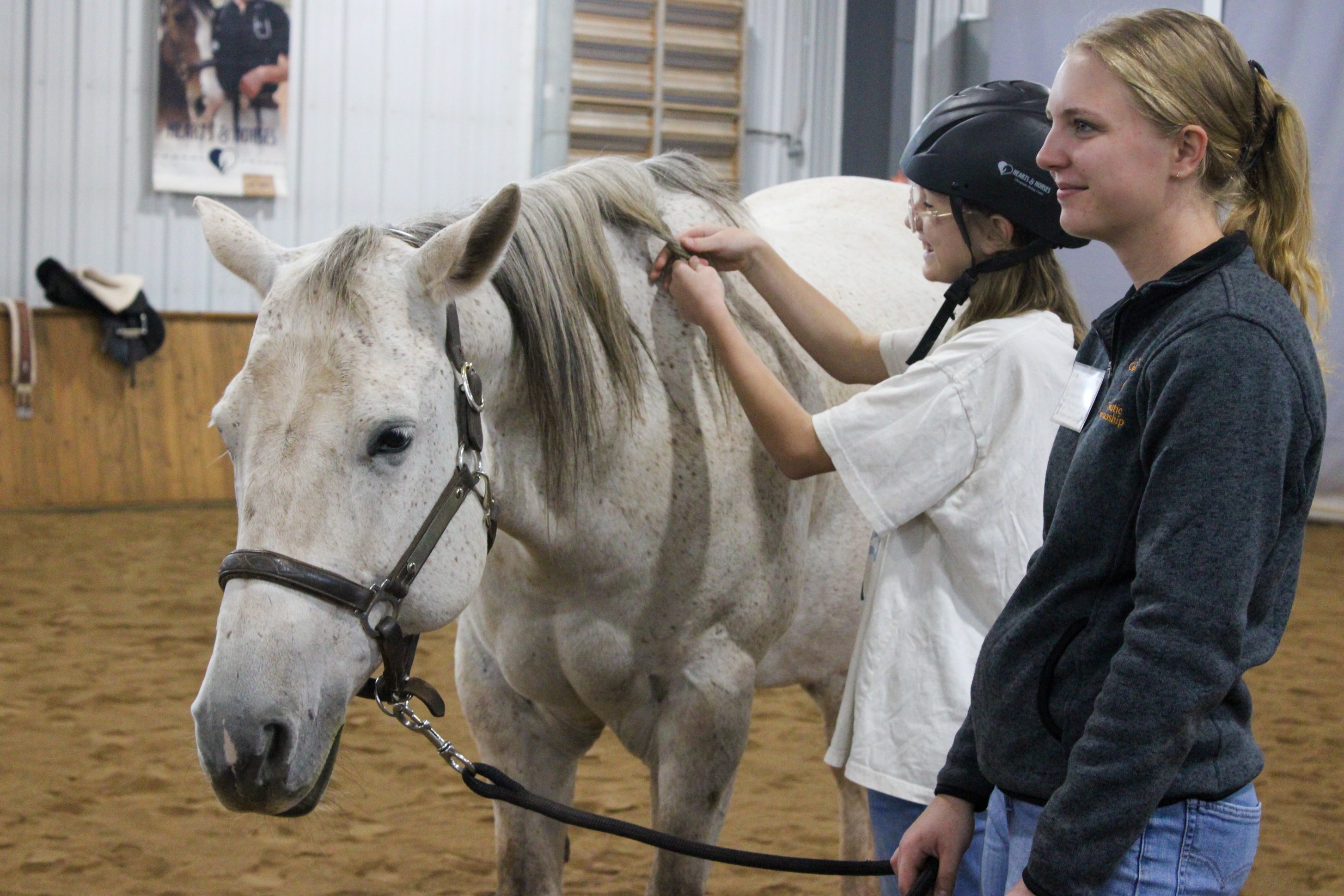
Madeline Novey
Communication Coordinator
Behavioral Health Services
970-619-4255
noveyme@co.larimer.co.us
Click a photo to enlarge.
